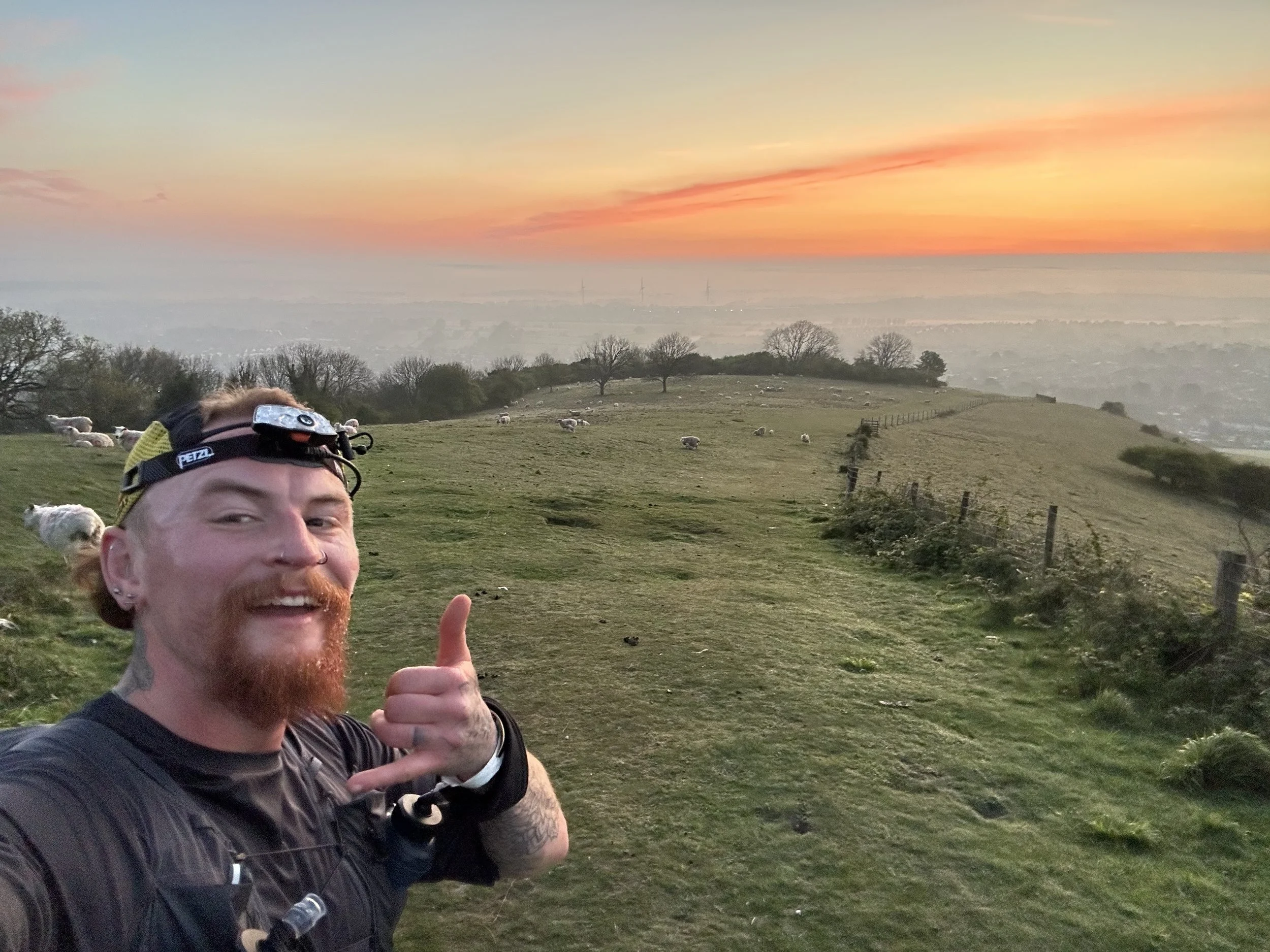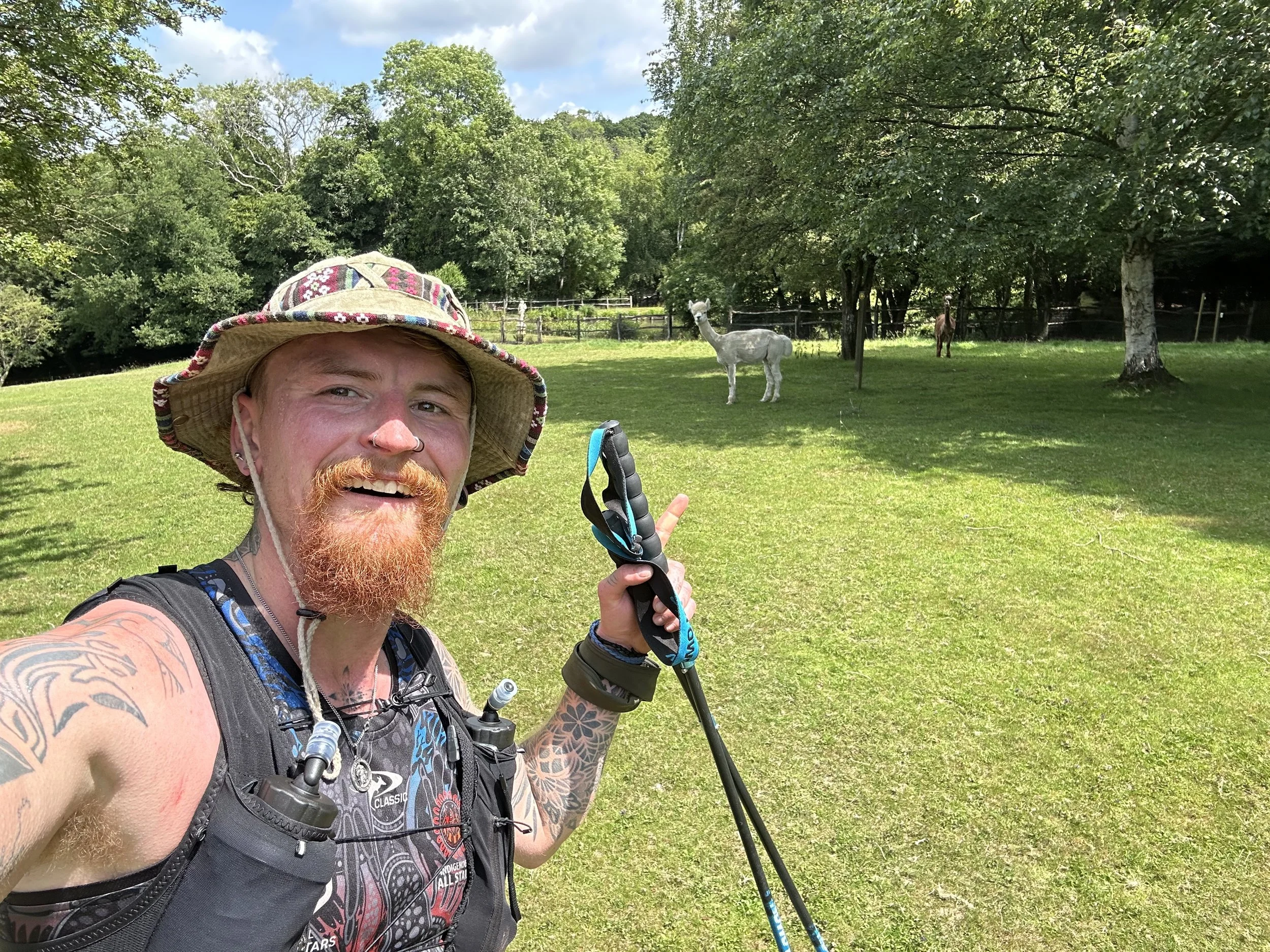5 Reasons Why YOU Should Try Trail Running
Trail running is more than just running off-road.
It’s a complete shift in mindset, environment, and experience. Whether you’re a seasoned road runner, a strength athlete, or someone looking for a new way to get outside and move your body, trail running offers something unique.
I’ve spent the last 6 years working with runners of all ages, backgrounds and abilities—many of whom made the jump from pavement to dirt with incredible benefits to both body and mind.
As a trail runner myself, I can say with absolute certainty that trail running isn’t just a sport—it’s a lifestyle. 3 years ago, I decided one day to sack off the tarmac and head out for a run on a well known trail near me, the TW Circular.
Since then, I have shifted my focus entirely to the trails - with all my own personal endeavours being largely in hills, forests, mountains and everything in between…
…and it might just be the missing piece in YOUR training or mental wellness puzzle.
Here are 5 reasons why YOU should give trail running a shot.
1. Lower Risk of Injury
It might sound counterintuitive—won’t all those rocks and roots be dangerous? Actually, it’s quite the opposite.
Running on trails introduces constant variability in surface and terrain. Instead of the repetitive, high-impact pounding of asphalt, trail surfaces like dirt, grass, and soft-packed gravel are much more forgiving on your joints.
This constant variation also means your body recruits a wider range of muscles and movement patterns. Your ankles, knees, hips, and core are constantly adjusting, preventing the repetitive strain injuries common in road runners.
I may be biased as a trail nut myself, but the proof is in the pudding; and trail running has been shown to reduce the likelihood of chronic overuse injuries, such as IT band syndrome, shin splints, and plantar fasciitis.
In my coaching, I often suggest injured or rehab-focused runners move towards the trails for exactly this reason. It’s a game-changer—not only for physical recovery but also for all the psychological benefits that trail running provides (explained below).
2. Builds Strength & Stability
Trail running demands strength—not just in your legs, but in your entire body.
Uneven terrain forces your stabiliser muscles to wake up and do their job. Every rock, slope, or root you navigate becomes a mini strength-training rep.
Your ass, hamstrings, calves, and core all get more involved compared to road running. And if you’re running hilly trails? Say hello to some naughty hill sprints that build power and muscular endurance without needing a gym!
I can’t stress enough how complementary trail running is to a well-rounded strength program. The proprioception, balance, and coordination it develops make you not just a better runner, but a more durable human overall.
3. Connection with Nature
Let’s be honest: we are all massively overexposed to screens, noise, and artificial environments. Even as someone who spends as much time as possible outdoors, I still find myself overconsuming social media a little too often.
Trail running offers an antidote.
The simple act of moving through a forest, along a coastal path, or over a moorland ridge is so grounding you wouldn’t believe it. Studies consistently show that exposure to green space and natural light reduces cortisol levels, lowers blood pressure, and improves mood.
With the added benefit of seeing some cool sh*t along the way!
Personally, my toughest ultra races have been the ones where I felt most in tune with nature—playing witness to sunrises from mountain peaks, hearing nothing but the wind and my own breath, and reconnecting with what movement is really about. It sounds a bit wanky and spiritual (particularly from a lifelong cynic like myself), but having had so many amazing experiences immersed in nature it is so true.
Trail running becomes a form of moving meditation. Whether you’re out for 30 minutes, 3 hours, or 3 days, you’ll return feeling clearer, lighter, and more present.
4. Being Present in Your Runs (Concentration)
Trail running doesn’t really allow you to switch off from the task at hand— which in our modern world of a million things on our mind, is so valuable;
Unlike road running, where it’s easy to zone out and grind miles mindlessly, trails demand your full attention. You need to watch your footing, adjust your pace, and navigate ever-changing terrain. That heightened awareness trains your brain just as much as your body.
From a mental health perspective, this presence is powerful.
It interrupts rumination and overthinking, two common patterns in anxiety and low mood. You’re forced to be in the now—not thinking about work, family or the like. As an incredibly anxious person, the meditative practice of pounding 1’s & 2’s on the trails is second-to-none in its ability to calm the mind and silence all the noise.
Similarly, many of my Athletes who struggle with stress or depressive cycles have found trail running a crucial part of their emotional toolkit. I like to think of it as a neural reset button; thus transcending its function far beyond that of mere ‘exercise’.
5. Community (Less Focus on Pace, More on People)
Road running and racing can sometimes feel competitive, commercial, and ego-driven. We’ve all seen those reels and clips from flashy London run clubs that have repurposed the original notion of a Run Club to that of a fight for status, instagram likes and a glorified fashion parade.
Maybe I’m just bitter because I wear weird toe shoes and old t shirts…you decide!
Trail running, by contrast, is often refreshing in how inclusive it is as a wider community. One where no one gives a flying f*ck what you are wearing, where beginners and pros come together as one to share a love for the trail.
To sum it up in one sentence: “Function > Fashion”.
At trail races—whether it’s a local 5K or a 200-miler—you’ll see elite athletes chatting with first-timers, people helping each other up hills, and finish-line hugs that don’t care about your pace; parkrun being a classic example (excluding London…)
The trail community values effort, perseverance, and love for the sport far more than PBs or Instagram likes.
In trail running, no one cares how fast you are. They care that you showed up, that you’re respecting the land, and that you’re part of the adventure.
As someone who’s podiumed at ultramarathons, I can tell you: the best moments don’t happen crossing the finish line. They happen out there—at mile 70, sharing trail mix with a stranger, or laughing your way through a bog in sideways rain with new pals.
Friendship forged in suffering at the hands of Mother Nature. Compare that to that of a road marathon, and you’ll catch my drift…
Conclusion
Trail running offers so much more than fitness. It offers freedom—from pavement, from performance pressure, and even from your own internal noise.
It builds a stronger, more resilient body, cultivates focus, and connects you to nature and others in a way few other activities can.
Whether you’re looking to reduce injuries, support your mental health, build strength, or just rediscover your joy in movement—trail running is calling. And trust me: once you answer that call, you’ll wonder why you didn’t lace up and hit the dirt sooner.
Want help transitioning to the trails? I offer coaching programs for beginners, road-to-trail runners, and ultra athletes, including strength training and mental health support tailored to your needs. Drop me a line to explore how YOU can get involved with the Team!









